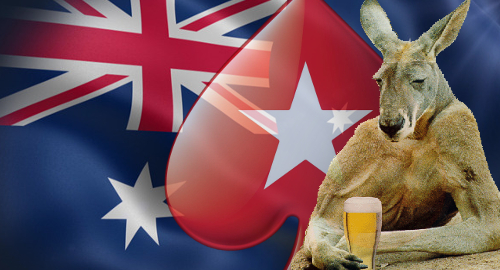2016’s top gambling stories:
Australia’s New Legislation

Australia’s online sports betting market got a forced makeover in 2016, as legislators were forced to respond to operators’ ingenious but provocative methods of dodging the country’s online in-play betting ban.
April brought the release of the government’s review of the Interactive Gambling Act (IGA) 2001, leading the Northern Territory Racing Commission to order its licensees to shut down their in-play apps.
In November, the government introduced amendments to the IGA that explicitly banned digital in-play betting (unless your name is Tabcorp or Tatts) while formally banning online poker and casino sites, prompting PokerStars to admit its Aussie-facing site was living on borrowed time.
The year also saw Australia infected by the UK gambling sector’s merger mania via the announcement of a deal between Tabcorp and Tatts. Concerns have been voiced that the combined entity would have too much control over certain sectors, such as pari-mutuel wagering, and thus the deal might not pass the anti-competitive smell-test. International operators may yet crash the party by making a better offer for either Tabcorp or Tatts.
EUROPEAN MARKET REGULATION: WIN SOME, LOSE SOME
October brought an apparent resolution to the four-year legal tussle over Germany’s sports betting laws. Germany’s 16 states announced that they’d reached consensus on a plan to scrap the 2012 federal gambling treaty and lift its cap on the number of sports betting licenses.
The German states also said they were considering authorizing online casino sites, reversing a position they’d re-emphasized as recently as March 2016, when they expressed a preference for “minimally invasive surgery” to repair the flawed 2012 treaty.
Poland announced its own online gambling liberalization, although it plans to restrict online casino and poker operations to its domestic gambling monopoly and is sticking with the punitive 12% sports betting turnover tax that operators have claimed is unworkable.
Portugal doled out its first online gambling licenses, including its first online poker license to PokerStars, which got off to a fast start as the only legal online poker option in town.
In September, Greece vowed to issue its long awaited new online gambling licenses in “a maximum of one month,” yet no licenses had been issued as of December. The Netherlands’ new gaming legislation inched forward but still hasn’t crossed the finish line. And Norway opted to stick with its gambling monopoly rather than license international operators.
In September, gaming regulators in select European markets reached a landmark agreement to reach another landmark agreement sometime next year to allow their licensees to pool online poker liquidity.
ALSO RANS
NYX Gaming Group acquired sportsbook technology provider OpenBet with a financial assist from William Hill, who, given their history with NYX rivals Playtech, probably didn’t relish the thought of OpenBet becoming part of Playtech’s ever expanding empire.
Quebec passed its controversial Bill 74, which aims to bring internet censorship to Canadian shores for the first time by blocking the domains of Loto-Quebec’s online competitors. But Canada’s federal telecom regulator declared a turf war against Quebec’s protectionist policies, meaning Loto-Quebec will eventually have to find other means of allowing its uncompetitive product to compete on the open market.
Nevada sportsbook tech provider CG Technology came apart at the regulatory seams in 2016. In July, the company was found to have knowingly ignored a software glitch that underpaid parlay bettors, a failure that cost the company $1.5m and cost CEO Lee Amaitis his job. In October, CGT reached a $22.5m settlement for allowing organized crime figures to launder money via illegal messenger wagers at CGT sportsbooks. All of which kinda poked major holes in all that malarkey about gold standard regulatory regimes that supposedly prevent operators from behaving badly.
The year also saw online gambling operators face powerful new distributed denial of service (DDoS) attacks built around Internet of Things botnets. The most spectacular of these attacks came against William Hill, which was knocked offline for several days in November, leading many battle-scarred veteran operators in so-called banana republics to marvel at Hills’ lack of preparedness.

